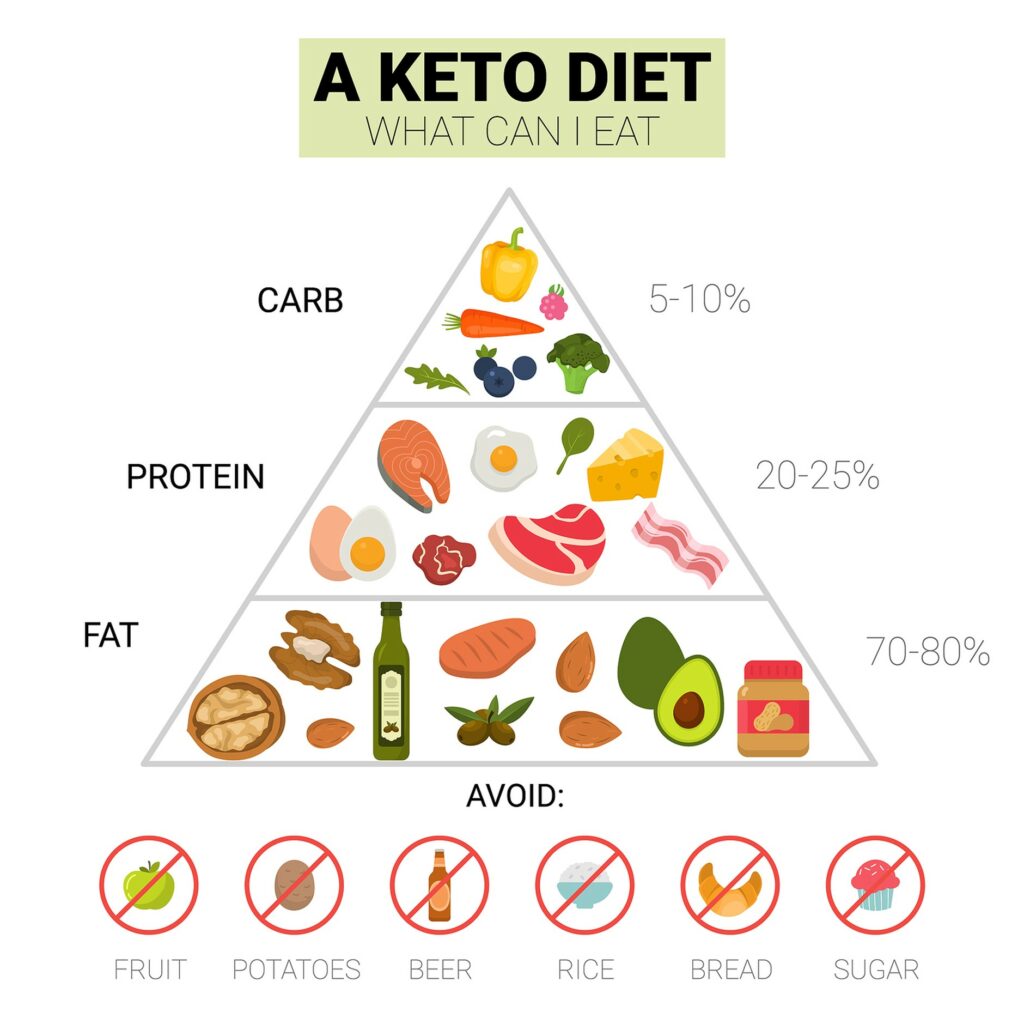
In the quest to lose weight, many people want to see instant results. To achieve this, they may even resort to some extreme dieting techniques without completely understanding possible ill-effects. One well-known name among dieters looking for quick weight loss solutions is the ketogenic or keto diet. The keto diet has gained popularity across the world since various celebrities endorse it.
What Is the Keto Diet and How Does It Work?
The name of the keto diet is derived from the process of ketosis. During ketosis, stored body fat is broken down to produce energy. When we consume less than 50 grams of carbohydrates in a day, it causes a drop in blood sugar levels. This blood sugar is the preferred source of fuel for the body. Eventually, the body starts using fat and protein to produce energy, leading to weight loss.
The keto diet emphasizes on consumption of high-fat foods and severely cutting down on high carbohydrate foods. In the keto diet, 60% to 80% of the calories should come from fat, and carbohydrates are restricted to less than 50 grams each day. Also, only moderate amounts of protein are consumed.
Keto has been a controversial weight loss plan. Some health experts warn against it entirely, citing unpleasant side effects, health risks, and the diet’s unsustainable nature. Even many keto diet proponents admit that if the diet’s not done “the right way,” it can be the opposite of healthy. (MacMillan)
Dangers of the Keto Diet
Here are some things you must keep in mind before you try out the keto diet.
The ‘Keto Flu’
The ‘keto flu’ is one of the most common side-effects of this diet. The body does take some time to get adjusted to the diet. However, many dieters feel that the transition period is an unpleasant one. As the body enters ketosis, some of the reported symptoms are fatigue, lethargy, dizziness, nausea, poor sleep, etc. This is termed the ‘keto flu’.
Some ways of minimizing the effects of keto flu are getting adequate sleep and drinking plenty of water. The keto flu symptoms could take anywhere from a few days to a few weeks to subside.
Gastrointestinal Issues
In the keto diet, the consumption of vegetables and fruits is minimal. Vegetables and fruits are rich in fiber, minerals, vitamins, and other essential compounds vital for our good health. Fiber also plays a crucial role in weight loss and preventing gastrointestinal cancers.
The lack of fiber in the keto diet can lead to gastrointestinal issues like diarrhea or constipation.
Can Lead to Weight Regain
The keto diet is restrictive and not considered a sustainable, long-term diet plan. When dieters go back and start consuming carbohydrates again, they may end up regaining a lot of the weight they lost.
These kinds of weight fluctuations could lead to disorder eating. Returning to old eating habits could also trigger feelings of failure, guilt and leave them with negative feelings around food.
Can Feel Emotionally Exhausting
Dieters following the Keto diet have to watch what they eat closely, and this can cause anxiety and stress. They may avoid social gatherings, so they are not tempted to go off the diet plan. This may make the dieters feel socially isolated.
Does the Keto Diet Work?
The big question remains, does the keto diet work? The simple answer: there is not enough research to understand the long-term effects of the keto diet.
It takes about 2 to 3 weeks for the ketosis or fat burning process to begin in the body. Some studies have shown that adhering to low- or very-low-carbohydrate ketogenic diets help people lose weight. However, in the long term, a ketogenic diet and a higher carbohydrate diet are not significantly different. (Mayo Clinic)
While most people follow the keto diet to lose weight, it may help manage certain conditions like epilepsy. However, more research is awaited in these areas.
The Keto diet may be impossible for most people to follow. Also, since dieters consume limited amounts of fruits, whole grains, and vegetables, it is not ideal for optimal health.
There are several diet plans, and they may not be suitable for everyone. Each individual is different and will react differently to a program. It’s highly recommended to consult your doctor to learn if the keto diet is safe for you before considering trying it out.
Works Cited
MacMillan, Amanda. “7 Dangers of Going Keto.” Health.com, 2019, https://www.health.com/weight-loss/keto-diet-side-effects.
Mayo Clinic. “Is the Keto Diet for You? A Mayo Expert Weighs In.” Mayo Clinic, Mayo Foundation for Medical Education and Research, 3 Jan. 2020, https://www.mayoclinic.org/is-the-keto-diet-for-you-a-mayo-expert-weighs-in/art-20457595.
















